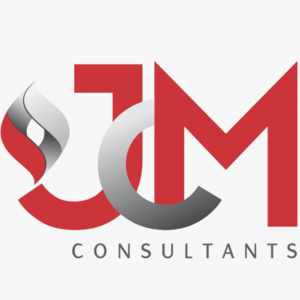In today’s interconnected world, collaboration is key to personal and professional success. Whether working on a project with a team, problem-solving in a group setting, or navigating workplace dynamics, collaboration skills enable you to build strong relationships, communicate effectively, and achieve shared goals. Here are 10 essential collaboration skills and how to enhance them for greater success in your career or personal projects.
1. Active Listening
Active listening involves more than just hearing words; it’s about fully concentrating, understanding, responding, and remembering what is being said. A good collaborator listens to others without interrupting, acknowledges their ideas, and asks thoughtful questions.
How to Improve:
- Practice mindfulness to stay present in conversations.
- Avoid distractions during meetings, such as phones or emails.
- Paraphrase what others say to confirm understanding.
- Ask clarifying questions to deepen your comprehension.
2. Effective Communication
Good communication is the backbone of collaboration. This includes both verbal and non-verbal communication, as well as written forms like emails and reports. The ability to express ideas clearly and succinctly is crucial to avoid misunderstandings.
How to Improve:
- Work on articulating your thoughts before speaking.
- Practice writing concise, clear messages or emails.
- Pay attention to non-verbal cues such as body language and facial expressions.
- Use active voice and avoid jargon unless it’s relevant to the team.
3. Empathy
Empathy involves understanding and considering the perspectives and emotions of others. In collaboration, being empathetic helps you respond to the needs and concerns of team members, building stronger connections.
How to Improve:
- Make a habit of asking others how they feel about certain decisions or ideas.
- Read books, articles, or watch videos on emotional intelligence to broaden your understanding of different emotional responses.
- Engage in active listening to better grasp the emotional context of conversations.
- Practice putting yourself in someone else’s shoes during discussions or conflicts.
4. Open-mindedness
Open-mindedness is the willingness to consider new ideas and viewpoints, even when they differ from your own. It’s essential in collaboration because diverse perspectives can lead to more creative solutions.
How to Improve:
- Challenge your own biases and preconceptions by exposing yourself to different perspectives.
- Encourage open discussion in team settings where all ideas are welcome.
- Avoid immediately rejecting ideas that seem unconventional or unfamiliar.
- Practice saying “yes, and…” instead of “no, but…” to promote creative thinking.
5. Conflict Resolution
Conflict is inevitable in any group setting, but strong collaborators handle disagreements with professionalism and tact. Effective conflict resolution involves understanding the issue from multiple angles, finding common ground, and working toward a fair solution.
How to Improve:
- Stay calm and focused on the issue at hand rather than letting emotions escalate.
- Use active listening to understand the opposing viewpoint before responding.
- Learn negotiation techniques to reach mutually beneficial agreements.
- Practice patience and try to view conflict as an opportunity for growth, rather than a roadblock.
6. Dependability
Dependability means consistently following through on commitments and meeting deadlines. In collaborative settings, team members rely on each other to fulfill their responsibilities, so being dependable fosters trust and accountability.
How to Improve:
- Set realistic expectations for what you can accomplish.
- Create a system for tracking your tasks and deadlines, such as a to-do list or project management software.
- Communicate promptly if you encounter obstacles that may prevent you from meeting a deadline.
- Take ownership of your role in the team, ensuring your contributions are consistent.
7. Adaptability
Collaboration often requires adjusting to new ideas, processes, or team dynamics. Being adaptable means being flexible and open to change, allowing you to thrive in different team environments and situations.
How to Improve:
- Develop a growth mindset by embracing challenges and seeing failures as opportunities to learn.
- Get comfortable with ambiguity by practicing decision-making in uncertain situations.
- Be open to constructive feedback and incorporate it into your work.
- Volunteer for projects outside of your comfort zone to build your adaptability muscles.
8. Teamwork
At the heart of collaboration is teamwork—working collectively toward a common goal. Strong teamwork involves coordinating efforts, sharing responsibilities, and supporting one another to achieve success.
How to Improve:
- Regularly acknowledge the contributions of others and give credit where it’s due.
- Work on your willingness to share knowledge and expertise with your team.
- Engage in team-building exercises or activities that strengthen bonds among team members.
- Focus on team goals rather than personal recognition or achievements.
9. Negotiation
Negotiation is the ability to navigate differences, find compromises, and reach agreements that satisfy all parties involved. It’s a critical skill in collaborative environments where different interests and opinions need to be balanced.
How to Improve:
- Practice active listening to better understand the needs and desires of others.
- Work on staying calm and composed, even when negotiations become intense.
- Develop problem-solving skills to identify win-win situations during negotiations.
- Learn to articulate your position clearly while remaining open to compromise.
10. Giving and Receiving Feedback
Constructive feedback is essential for improving performance and fostering a collaborative environment. Knowing how to give feedback in a way that’s helpful rather than critical, and being open to receiving feedback without becoming defensive, is crucial.
How to Improve:
- When giving feedback, focus on specific actions or behaviors rather than personal attributes.
- Be timely with feedback, providing it close to the event or behavior you’re addressing.
- When receiving feedback, listen fully without interrupting, and ask clarifying questions if needed.
- Reflect on the feedback you receive and make changes to your approach or behavior accordingly.
Collaboration is a cornerstone of success in both personal and professional life. By honing these 10 collaboration skills—active listening, effective communication, empathy, open-mindedness, conflict resolution, dependability, adaptability, teamwork, negotiation, and giving and receiving feedback—you can strengthen your ability to work effectively with others. Each skill takes time and effort to develop, but with practice, they will lead to better relationships, more successful outcomes, and a more fulfilling collaborative experience.

